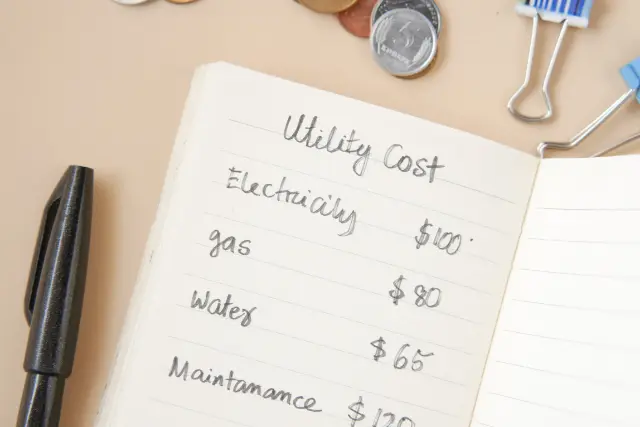Tenant Screening Automation: A Game-Changer for Real Estate
Tenant screening is a crucial step in the real estate industry, but it can be a time-consuming and error-prone process. Tenant Screening Automation using Python, AI, and cloud-based solutions can revolutionize this process, making it faster, more accurate, and more efficient.
By automating tenant screening, property managers can save countless hours and reduce the risk of making bad hiring decisions. Tenant Screening Automation can help you:
- Reduce time spent on screening tenants: Automated systems can collect and analyze tenant data in seconds, freeing up property managers to focus on other tasks.
- Improve accuracy: Automated systems can eliminate human error from the screening process, ensuring that all applicants are evaluated fairly and consistently.
- Make better decisions: Automated systems can use AI to assess tenant risk levels, helping property managers make informed decisions about who to rent to.
If you’re looking for a way to streamline your tenant screening process and improve your bottom line, Tenant Screening Automation is the answer.

Python, AI, and the Cloud: Powering Tenant Screening Automation
Python, AI, and cloud-based solutions are the key ingredients for successful Tenant Screening Automation. Here’s how each of these technologies plays a role:
Python
Python is a versatile programming language that is well-suited for developing unattended bots for tenant screening automation. These bots can be scheduled to run on a regular basis, and they can automatically collect and analyze tenant data from a variety of sources.
For example, a Python bot could be used to:
- Collect tenant applications from online portals
- Retrieve credit reports and rental history from third-party databases
- Analyze tenant data and generate a risk assessment report
AI
AI can be used to improve the accuracy and efficiency of tenant screening automation. For example, AI algorithms can be used to:
- Identify and flag potential fraud
- Assess tenant risk levels
- Make automated decisions about whether to approve or reject applications
Cloud Platforms
Cloud platforms offer a number of benefits for tenant screening automation, including:
- Scalability: Cloud platforms can be scaled up or down to meet the needs of your business.
- Reliability: Cloud platforms are highly reliable, so you can be confident that your tenant screening automation will always be up and running.
- Security: Cloud platforms provide a high level of security, so you can be sure that your tenant data is safe.
In addition, cloud platforms offer a number of features that are specifically designed for automation, such as:
- Workflow orchestration: Cloud platforms can be used to orchestrate complex workflows, which can involve multiple steps and multiple systems.
- Data integration: Cloud platforms can be used to integrate data from a variety of sources, which can be used to create a more complete picture of each tenant.
- Machine learning: Cloud platforms offer a variety of machine learning services that can be used to improve the accuracy and efficiency of tenant screening automation.
By leveraging the power of Python, AI, and cloud platforms, you can create a Tenant Screening Automation solution that is fast, accurate, and efficient.

Building the Tenant Screening Automation
The process of building a Tenant Screening Automation solution using Python and cloud platforms can be divided into the following steps:
- Define the scope of the automation. Determine which tasks you want to automate, and gather the necessary data and resources.
- Design the automation workflow. Map out the steps involved in the tenant screening process, and identify the systems and data sources that will be involved.
- Develop the automation code. Write the Python code that will automate the tenant screening process.
- Deploy the automation solution. Deploy the automation code to a cloud platform, and configure it to run on a regular basis.
- Monitor and maintain the automation solution. Track the performance of the automation solution, and make adjustments as needed.
Data Security and Compliance
Data security and compliance are important considerations when developing any automation solution. When automating tenant screening, it is important to ensure that:
- Tenant data is collected and stored securely.
- Tenant data is only accessed by authorized personnel.
- Tenant data is used in a compliant manner.
Python vs. No-Code RPA/Workflow Tools
Python is a more powerful and flexible language than most no-code RPA/workflow tools. This gives Python developers the ability to create more complex and sophisticated automations. Additionally, Python is a more open source language than most no-code RPA/workflow tools. This means that Python developers have access to a wider range of resources and support.
Algorythum’s Approach
Algorythum takes a different approach to Tenant Screening Automation than most BPA companies. Algorythum develops custom automation solutions using Python and cloud platforms. This approach provides a number of advantages over using pre-built RPA tools, including:
- Greater flexibility: Python is a more flexible language than most RPA tools, so Algorythum can develop solutions that are tailored to the specific needs of each client.
- Improved performance: Python is a more efficient language than most RPA tools, so Algorythum’s solutions can run faster and more reliably.
- Lower cost: Python is an open source language, so Algorythum can develop solutions at a lower cost than companies that use proprietary RPA tools.
Algorythum’s approach has been validated by the success of our clients. Algorythum has helped clients to automate a wide range of tenant screening tasks, including:
- Collecting tenant applications from online portals
- Retrieving credit reports and rental history from third-party databases
- Analyzing tenant data and generating risk assessment reports
- Making automated decisions about whether to approve or reject applications
Algorythum’s clients have seen significant benefits from automating their tenant screening processes, including:
- Reduced time spent on screening tenants
- Improved accuracy of tenant screening decisions
- Increased efficiency of the tenant screening process
- Reduced risk of making bad hiring decisions
If you are looking for a way to automate your tenant screening process, Algorythum can help. Algorythum’s team of experienced Python developers can develop a custom solution that meets your specific needs.

The Future of Tenant Screening Automation
The future of Tenant Screening Automation is bright. As AI and cloud computing continue to evolve, we can expect to see even more powerful and sophisticated automation solutions.
One area where we can expect to see significant growth is in the use of AI to improve the accuracy and efficiency of tenant screening. For example, AI algorithms could be used to:
- Identify and flag potential fraud with greater accuracy
- Assess tenant risk levels more precisely
- Make more informed decisions about whether to approve or reject applications
Another area where we can expect to see growth is in the use of cloud platforms to scale Tenant Screening Automation solutions. Cloud platforms can provide the scalability, reliability, and security that is needed to support large-scale automation deployments.
We encourage you to subscribe to our blog to stay up-to-date on the latest trends in Tenant Screening Automation. And if you are interested in learning more about how Algorythum can help you automate your tenant screening process, please contact us today for a free feasibility and cost-estimate.

Algorythum – Your Partner in Automations and Beyond
At Algorythum, we specialize in crafting custom RPA solutions with Python, specifically tailored to your industry. We break free from the limitations of off-the-shelf tools, offering:
- A team of Automation & DevSecOps Experts: Deeply experienced in building scalable and efficient automation solutions for various businesses in all industries.
- Reduced Automation Maintenance Costs: Our code is clear, maintainable, and minimizes future upkeep expenses (up to 90% reduction compared to platforms).
- Future-Proof Solutions: You own the code, ensuring flexibility and adaptability as your processes and regulations evolve.









